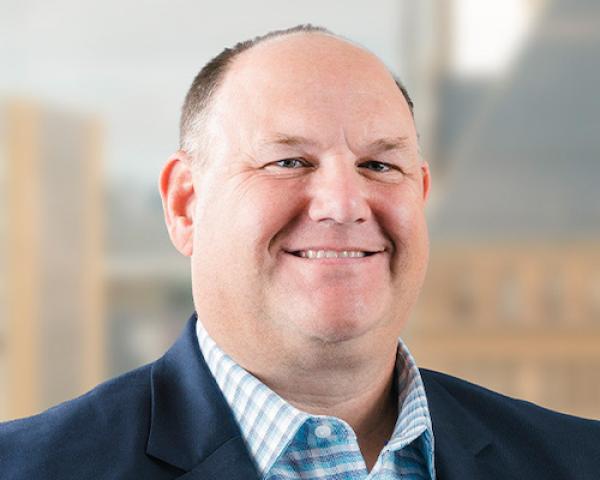Employee benefits consultants (EBCs) and employers too often overlook the growing discontent employees feel with skyrocketing out-of-pocket (OOP) costs compounded by overly complicated healthcare billing systems. Employees are at their wits' end dealing with endless medical bills and notices that rarely add up. What is and is not covered by their plan isn’t clear. Then they are inundated with endless medical bills and notices, but they can’t discern what they owe and to whom.
This stress and confusion can have a multiplier effect across the workforce, exacerbating employee satisfaction and retention problems.
But innovations in healthcare billing and payment platforms offer EBCs new ways to not only simplify the employee-patient experience when dealing with healthcare bills but make it easier and more affordable for them to access the care they need. Making healthcare billing less confusing and more cost-effective can benefit all:
- Employees become better-informed consumers who are more in control of their medical expenses and, more importantly, more engaged in their care.
- Employers lower their plan design costs while improving the well-being of their employees and their families.
- Providers spend less money and use fewer resources chasing patient payments and more time on patient care.
The systemic causes
The U.S. healthcare insurance industry has seen a significant shift in recent years as employers shift the financial burden of medical costs on to employees. This shift is due largely to employers moving more staff into high-deductible health plan (HDHP) options. Faced with skyrocketing healthcare costs, employers need to share more of the payments with employees to bring down costs and cover all. But it has resulted in growing out-of-pocket (OOP) contributions from the employees.
Nearly one-third of American workers were enrolled in high-deductible plans last year, according to the Kaiser Family Foundation. And that trend is expected to grow.
EBCs are helping employers temper the financial pain of high-deductible plans by designing plans with supplemental benefits and concierge services. But while welcomed by employees, these extra services can add complexity to the billing/payment experience. Employees now find themselves buried in a blizzard of Explanation of Benefits (EOBs) and "what you owe" statements. They have to wade through multiple invoices for deductibles and other payments, in addition to invoices from their health plan.
Worse yet, higher OOP cost pressures combined with increased billing confusion are causing many employees to postpone or forgo the care they need. A recent survey from Discover Personal Loans found that more than half (52%) of Americans experiencing medical financial pressure are putting off seeing a specialist, or being seen for a sickness (41%), or undergoing treatment plans recommended by their doctor (31%). At the same time, 56% of Americans said they felt “completely lost” when it came to understanding how their health insurance worked, with nearly half (47%) confused about which services were covered or considered out-of-network, according to a Bend Financial study. Employers recognize that this is an unsustainable position – employees delaying getting needed care due to cost and confusion will ultimately lead to more expensive, emergent needs for care.
See also: 4 Steps to Support Patient Financial Health
The fix
Despite their drawbacks, HDHPs are not going away any time soon. In fact, they can benefit employers and employees in a number of ways. For instance, they can help employees who need lower monthly premiums. HDHPs can also be combined with health savings accounts, allowing employees to make tax-free contributions to pay for their deductibles, co-pays and other medical expenses. And some experts contend that HDHPs encourage employees to become smarter, more discerning price/quality shoppers when seeking care.
Employers, of course, benefit from lower premiums and an improved bottom line.
The key for EBCs is to demonstrate the value of the HDHP plans by building in financial resiliency, transparency and simplicity for employees and their families. New payment platforms are creating a more patient-centric experience across the entire billing lifecycle. These platforms work by guaranteeing prompt full payments to healthcare providers in exchange for giving employees more affordable repayment plans for their OOP costs. They shift the financial relationship away from providers to specialized service providers that take the inefficiencies out of the system and streamline the payment process for all. This dynamic means that employees with HDHPs will no longer be chased by collections or face demands for pre-payment for care when finances are tight. As soon as a claim is adjudicated, providers get 100% of the in-network allowed amount.
To simplify employee engagement, EBCs can automatically enroll all employees – even those with less-favorable credit histories – and issue credit for all allowed charges up to their OOP max, regardless of their credit standing. Or they can receive credit for OOP costs at low to no interest, while constructing a payment schedule that fits the employee’s need.
These platforms also help eliminate the confusion surrounding billing. Instead of experiencing a blizzard of statements and notices, employees get a single, simple consolidated statement summarizing the totality of their care, regardless of where they received the care.
Final thoughts
Today’s archaic billing processes cause enormous stress, confusion and dissatisfaction among employees, employers and providers alike. New healthcare payment financing platforms give EBCs the opportunity to optimize the value of an employer’s healthcare plan by reducing complexities and providing an affordable payment path for employees who might otherwise struggle to pay high deductibles. The result is that employees are better-informed, more in control of their medical expenses and, most importantly, more engaged to seek the care they need.






